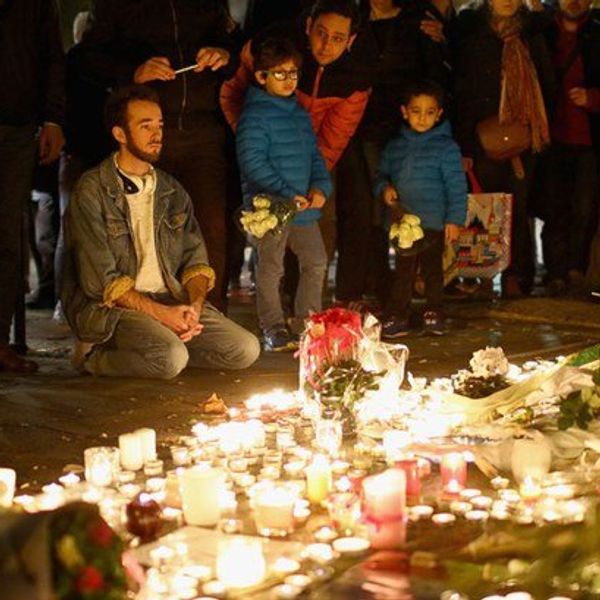Up until my junior year of high school, I was taught that the enemies of the United States were the ones on the wrong side of history.
However, one day, my International Baccalaureate History teacher at Goshen High School asked the class a question.
What if the United States is the wrong side?
For example, in August of 1945, the U.S. dropped atomic bombs on two Japanese cities.
The first bomb landed on August 6 in Hiroshima, a city of 381,000 people.
The second bomb followed three days later, on August 9, leveling Nagasaki, home to 263,000 people.
The bombs killed an estimated 129,000 people.
The bombings took place at the close of World War II. Japan was part of the Axis Powers, the alliance of countries fighting against the United States and its allies.
The United States declared war on Japan the day after the December 7, 1941 attack on Pearl Harbor, which killed more than 2,000 U.S. soldiers.
In their book "After the Fact: The Art of Historical Detection", authors James Davidson and Mark Lytle explain that by August of 1945, Japan was ready to surrender. However, it was President Harry S. Truman’s term of “unconditional surrender” that stopped Japan from surrendering. To the people of Japan, “unconditional surrender” meant giving up their emperor, whom they regarded as divine.
As a result, Truman made the decision to order the atomic bombings of Hiroshima and Nagasaki.
Had the U.S. been willing to negotiate, Japan would have surrendered and 129,000 lives would have been spared.
One could say that Japan had it coming. After all, Japan attacked U.S. territory, killing 2,000 Americans soldiers.
Does that justify the killing of 129,000 Japanese civilians?
Some may say that things have changed, that the U.S. would never again target civilians, or put them at risk. The evidence suggests otherwise.
The U.S. launched an airstrike campaign against ISIS in 2014.
Although the U.S. government claims that it only targets ISIS, it cannot be denied that civilians have been killed in the process.
Last May, a U.S. airstrike killed more than 60 civilians, more than half of them children according to news reports.
Rami Abdurrahman, the head of the Syrian Observatory for Human Rights, was quoted in The Guardian: “We think they [U.S.] got the wrong information. They thought it was ISIS, but it wasn’t.”
For years, the U.S. has been using drones to target and strike terrorist leaders in Afghanistan and elsewhere. However according to a report from The Intercept, a digital magazine that analyzed government documents, nearly 90 percent of people killed in recent drone strikes were not the intended targets.
The Huffington Post included an example from the report in which 14 people were killed by a drone strike in Yemen in December of 2013. The victims were returning from a wedding, however U.S. government officials mistook their vehicles for those of Al Qaeda militants.
The fact is that our government is killing innocent people.
The question is, do we approve of it?
Thousands of people are leaving Syria and seeking refuge in first world countries.
But why are they leaving their home?
Is it because of ISIS?
Is it because they are terrified that they may be the next civilians to be regarded as “collateral damage” in the midst of a U.S. attack on ISIS or an aerial bombardment by other nations?
And then U.S. government officials refuse to offer refuge to the very people whose homes they are destroying.
Perhaps the question is not whether or not the U.S. should let Syrian refugees through its borders.
Perhaps the question is, should we condone a violent retaliation against ISIS if that retaliation kills innocent people?
Because violence never leads to peace, only to more violence - and people on the move, seeking a safe home.




















